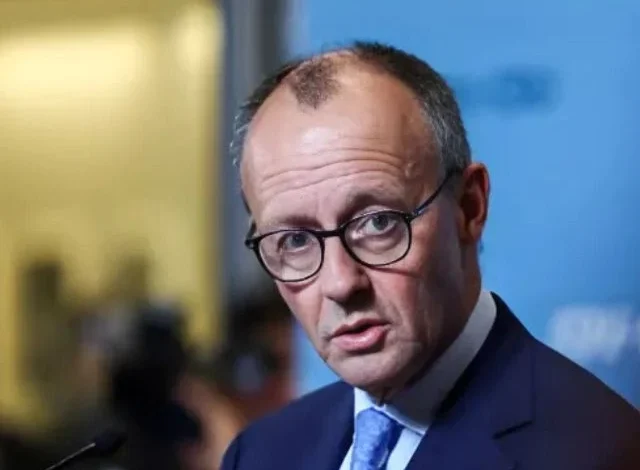Merz, Macron vow to fight for European digital ‘sovereignty’

.
BERLIN:
German Chancellor Friedrich Merz and French President Emmanuel Macron vowed Tuesday to help Europe catch up in the AI race and unshackle the continent from a heavy reliance on US tech titans.
Speaking at a Berlin summit attended by regional tech firms and investors, the leaders of Europe’s biggest economies also backed the EU’s expected rollback of digital rules that many firms complain are holding them back.
European companies pledged more than 12 billion euros ($13.9 billion euros) investment in the digital sector at the event, according to Merz, as the continent seeks to catch up with the United States and China in the AI race.
“Europe doesn’t want to be the client of the big entrepreneurs or the big solutions being provided either from the US or from China, we clearly want to design our own solutions,” Macron said, adding that this stance represented “a refusal of being a vassal”.
Merz called for Europe to “join forces and forge its own digital path — and this path must lead to digital sovereignty”.
“Digital sovereignty has costs, but the costs of digital dependence are even higher,” said the chancellor.
Uneasy US ties
Europe is responding to calls to blaze its own digital path as concerns escalate about US tech dominance at a time of increasingly uneasy ties with Washington under the “America First” administration of Donald Trump.
Despite the US-Europe tensions, a senior official from the French presidency earlier said the summit was not about “confrontation” with the United States or even China, but rather protecting “our core sovereignty”.
Amid concerns that onerous rules are hobbling European tech firms, France and Germany said they are pushing for a “simple, innovation-friendly and competitive EU regulatory framework”, according to a statement from Berlin after the summit.
They are calling specifically for a 12-month postponement for parts of the EU’s AI law, and simplifications of the bloc’s flagship data protection rules, it said. The EU is expected to propose a rollback in these areas Wednesday — a move welcomed by businesses, but criticised by privacy advocates.



